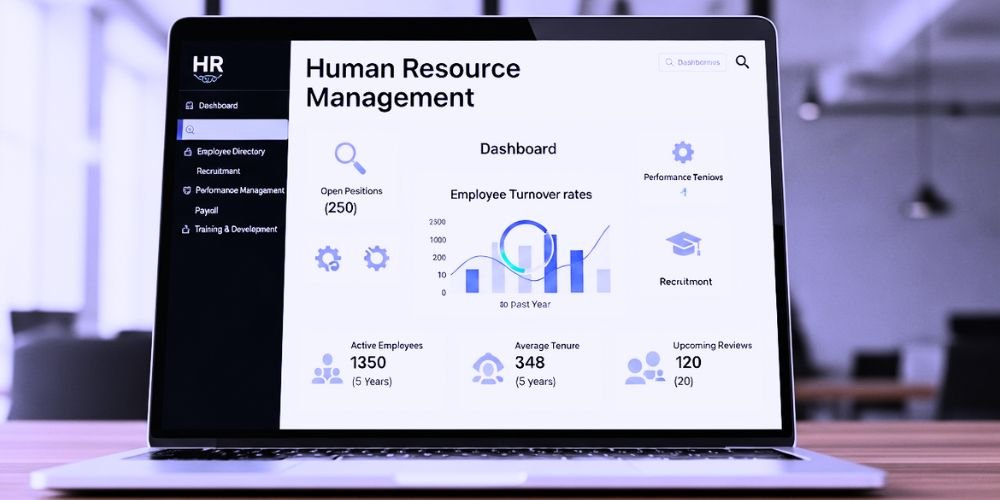The Master of Human Resource Management (MHRM) is a specialized graduate program that equips aspiring HR professionals with the knowledge and skills needed to excel in the dynamic and evolving field of human resource management. In today’s competitive business landscape, organizations recognize that human capital is their most valuable asset, and effective HR management is essential for achieving strategic objectives and maintaining a competitive edge. MHRM graduates are prepared to lead HR initiatives and drive organizational success. In this article, we will explore the significance of MHRM, its key components, and how it paves the path to HR leadership and strategic excellence.
Understanding the Master of Human Resource Management (MHRM)
MHRM is a postgraduate degree program that emphasizes the strategic role of HR in organizations. It goes beyond the foundational aspects of HR. It focuses on developing HR professionals who can effectively manage human capital, promote employee engagement, and align HR practices with overall business objectives. Its programs often blend theoretical concepts with practical applications, preparing graduates to address real-world HR challenges in diverse industries. MHRM programs are designed to provide in-depth insights into various HR disciplines, strategic workforce planning, talent management, and organizational development. With a strong focus on leadership, ethics, and strategic decision-making,
Critical Components of the MHRM
As someone who has completed the MHRM program, I can attest to the critical components that make it a valuable degree.
- HR Fundamentals and Practices: MHRM programs typically start with a comprehensive overview of HR fundamentals, including recruitment, talent acquisition, compensation, benefits administration, and employee relations. Students gain a solid understanding of the operational aspects of HR management, providing them with a strong foundation for advanced HR concepts.
- Strategic HR Management: A central focus of MHRM programs is strategic HR management. Students learn to identify and prioritize HR initiatives aligning with the organization’s business strategy. It involves understanding the external business environment, predicting future workforce needs, and developing HR plans that support the organization’s long-term goals.
- Leadership and Organizational Behavior: Leadership development is critical to MHRM programs. Students study organizational behavior, motivation, and team dynamics to develop practical leadership skills. Understanding how to lead and inspire teams is crucial for HR professionals as they influence corporate culture.
- Employee Development and Training: Its programs emphasize the importance of employee development and training. Students learn to design and implement effective training programs that enhance employee skills and competencies. Employee development is critical to fostering a culture of continuous learning and improving overall workforce performance.
- HR Analytics and Data-Driven Decision Making: With the increasing emphasis on data-driven decision-making, MHRM programs often incorporate courses in HR analytics. Students learn to leverage data insights to make informed HR decisions, measure the impact of HR initiatives, and identify trends and patterns that influence organizational performance.
- Legal and Ethical Considerations: MHRM programs address the legal and ethical aspects of HR management. Students become well-versed in employment laws, labor regulations, and ethical HR practices. Understanding legal requirements and ethical considerations is crucial for ensuring fair and compliant HR practices.
The Path to HR Leadership and Strategic Excellence
The MHRM program is a comprehensive and rewarding degree that equips students with the skills and knowledge they need to succeed in human resources.
- Strategic HR Leadership: MHRM graduates possess the knowledge and skills to become strategic HR leaders. They can contribute to organizational success by aligning HR practices with business goals, driving workforce planning, and fostering employee engagement. Understanding the broader business context and aligning HR strategies with corporate objectives is crucial in driving the organization’s success.
- Talent Acquisition and Retention: These graduates are well-equipped to attract and retain top talent. Their expertise in recruitment, talent management, and employee development helps organizations build a skilled and motivated workforce. Effective talent acquisition and retention strategies create a competitive advantage in the talent market.
- Data-Driven Decision-Making: Its programs emphasize the importance of data-driven decision-making in HR management. Graduates can leverage HR analytics to identify trends, forecast HR needs, and make strategic decisions based on data insights. This data-driven approach enables HR professionals to make evidence-based decisions that lead to better outcomes.
- Conflict Resolution and Employee Relations: MHRM graduates excel in conflict resolution and employee relations. Their understanding of organizational behavior and communication skills can mediate conflicts and promote a positive work environment. Strong employee relations contribute to higher employee satisfaction and a more engaged workforce.
- Change Management: MHRM programs prepare graduates to navigate organizational change effectively. Their leadership abilities and understanding of change management principles help organizations adapt to evolving business landscapes. HR professionals play a crucial role in managing change and ensuring smooth transitions during periods of organizational transformation.
Conclusion
MHRM is a valuable degree program that prepares HR professionals for leadership roles and strategic excellence. With a comprehensive curriculum covering HR fundamentals, strategic management, leadership development, and data-driven decision-making, these graduates are well-prepared to address complex HR challenges and drive organizational success. As the role of HR continues to evolve, MHRM programs play a crucial role in shaping the next generation of HR leaders who will shape the future of work and drive positive organizational change.
The combination of strategic thinking, people management skills, and data-driven insights positions MHRM graduates as valuable assets in any organization, contributing to achieving business objectives and fostering a culture of excellence and innovation. By pursuing an MHRM degree, aspiring HR professionals can pave the way for a successful career in HR leadership and impact the success and growth of their organizations.













